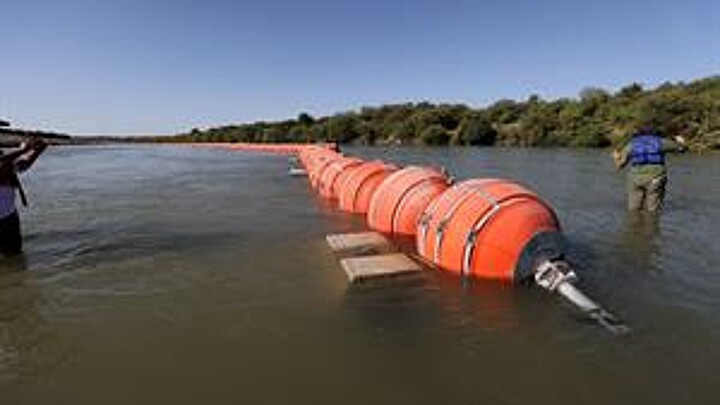Border
Texas Gov. Greg Abbot invokes 'invasion clause' over border crisis
"I'm using that constitutional authority, and other authorization and Executive Orders to keep our state and country safe," he said
November 16, 2022 7:46am
Updated: November 16, 2022 8:39am
Texas Governor Greg Abbott said on Tuesday that he will be invoking an “invasion” clause from the U.S. Constitution and Texas Constitution to deal with the border crisis in his state.
"I invoked the Invasion Clauses of the U.S. & Texas Constitutions to fully authorize Texas to take unprecedented measures to defend our state against an invasion," Abbott posted on social media on Tuesday.
"I'm using that constitutional authority, and other authorization and Executive Orders to keep our state and country safe," he added.
Along with his announcement, the governor listed several actions he intends to take that are allegedly covered by the invasion clause, including the activation of the National Guard and Texas Department of Public Safety personnel to help prevent border-crossings by undocumented migrants.
The governor also plans to deploy gunboats to help secure the border and designate Mexican drug cartels as foreign terrorist organizations.
The “invasion clause” Abbott refers to is found in Article IV, Section 4 of the U.S. Constitution, which states that the U.S. "shall guarantee every state in this Union a republican form of government and shall protect each of them against invasion."
Article 4, Section 7 of Texas’ Constitution states that the governor has the “power to call forth the militia to execute the laws of the State, to suppress insurrections, and to repel invasions."
Abbott was reelected as governor of Texas last week, winning the race against Democrat Beto O’Rourke by about 11 points. The border crisis was a top issue in Abbott’s re-election campaign.
The U.S. has seen a surge in migration that broke records in the recent fiscal year that ended on September 30. More than 3.28 million migrants were apprehended at the border, 37% more than the 1.73 million in the fiscal year 2021, according to data from the U.S. Customs and Border Protection.









